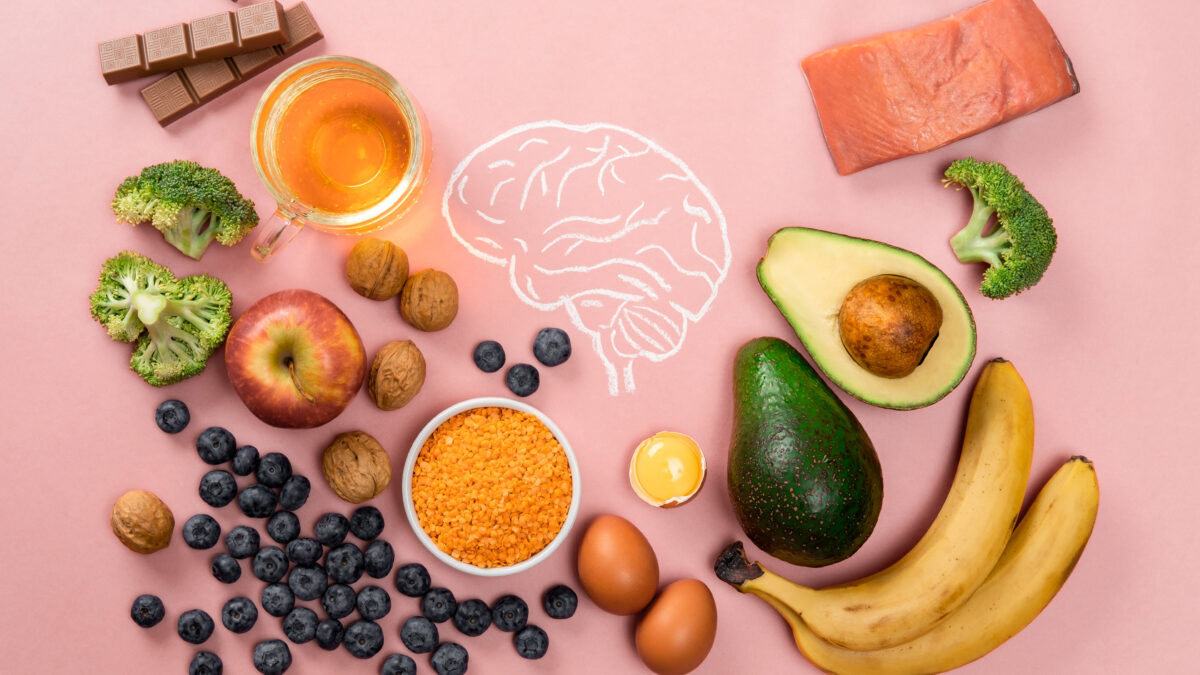
Bioenergetics, what is it?
May 2, 2024
Harnessing Exercise to Combat Depression and Anxiety
June 2, 2024In the pursuit of mental well-being, we often focus on therapies and medications, but a fundamental aspect that’s increasingly gaining recognition is nutrition. The food we consume doesn’t just fuel our bodies; it profoundly influences our mental health, mood stability, and cognitive function.
Nutrients for Brain Health
Certain nutrients play pivotal roles in brain function. Omega-3 fatty acids, found abundantly in fatty fish like salmon and in flaxseeds and walnuts, are crucial for brain structure and function. They support neurotransmitter function, which impacts mood and cognition. Similarly, B vitamins, found in leafy greens, legumes, and whole grains, are essential for energy production and neurotransmitter synthesis, affecting mood regulation.
Gut-Brain Axis
The gut-brain axis highlights the bidirectional relationship between our gut health and mental well-being. A healthy gut microbiome, nurtured by a diverse range of fruits, vegetables, and fermented foods, produces neurotransmitters like serotonin, often referred to as the “happy hormone.” Imbalances in gut bacteria have been linked to conditions such as depression and anxiety.
Impact of Sugar and Processed Foods
Conversely, diets high in sugar and processed foods can contribute to inflammation and oxidative stress in the brain. These factors are linked to an increased risk of mood disorders and cognitive decline. A diet rich in antioxidants from fruits and vegetables helps combat oxidative stress and supports overall brain health.
Nutrition and Mental Health Disorders
Research indicates that nutritional interventions can complement traditional treatments for mental health disorders. For example, studies suggest that increasing omega-3 intake may reduce symptoms of depression. Similarly, Mediterranean-style diets, rich in fruits, vegetables, whole grains, and healthy fats, have shown benefits in improving mood and reducing the risk of depression.
Practical Steps for Better Mental Health Through Nutrition
Incorporating nutrition for mental health doesn’t require drastic changes. Simple steps like reducing sugar intake, increasing consumption of whole foods, and incorporating probiotics through yogurt or kefir can make a significant difference. Mindful eating practices, focusing on nutrient-dense foods, can support both physical and mental well-being.
The impact of nutrition on mental health underscores the importance of a holistic approach to well-being. By nourishing our bodies with wholesome foods rich in essential nutrients, we not only support physical health but also cultivate a resilient mind. Embracing a balanced diet can be a powerful step towards enhancing mood, improving cognitive function, and fostering long-term mental wellness. As we continue to explore the intricate connection between food and mood, integrating nutrition into mental health care holds promise for a brighter, healthier future.




